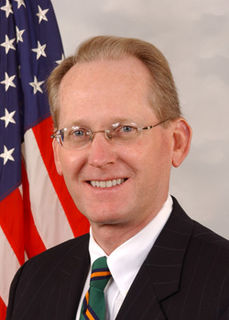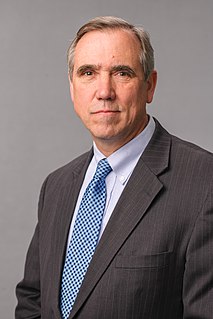A Quote by Charles Boustany
Reducing health care costs for families requires increased competition in health insurance.
Related Quotes
The best thing that is happening with the health care is premiums will come down. We'll have tremendous competition; you know, we're getting rid of the border state lines, and we're going to have tremendous competition. We're going to have insurance companies fighting, like life insurance. You know, we - life insurance, you have these companies that are like - like going all over the place. We're going to have a tremendous - tremendously competitive market and health care costs are going to be forced down.
While Free Choice Vouchers didn't fulfill my vision of a health care system in which every American would be empowered to hire and fire their insurance company, they were a foothold for choice and competition and a safety valve for Americans whose employers are already forcing them to bear more and more of their family's health insurance costs.


































